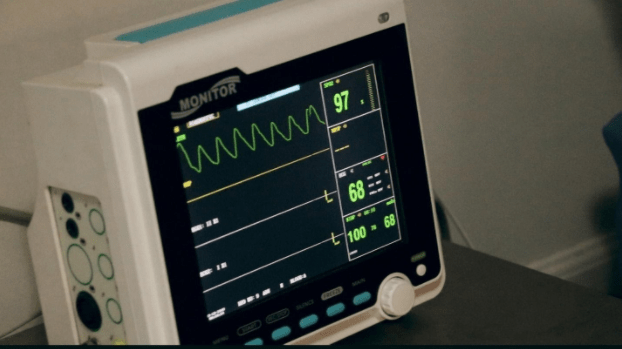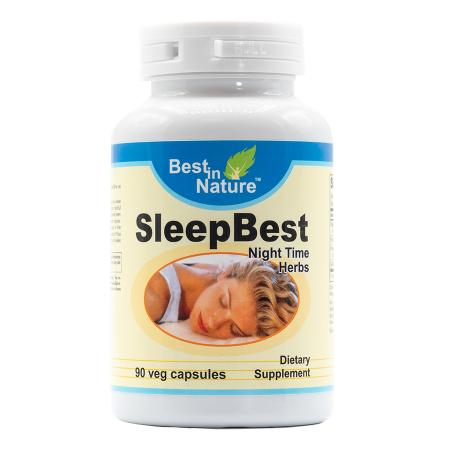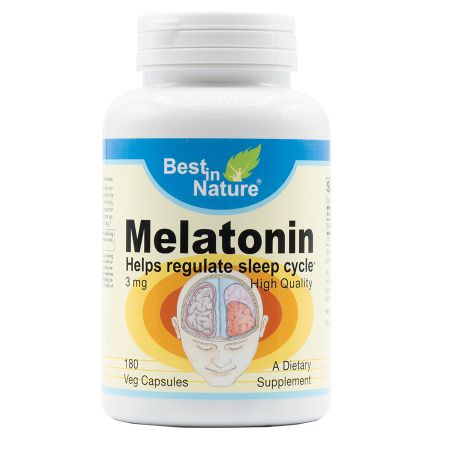
Reviewed and Updated: November 12th, 2024
10 min read
Our day-to-day lives include a variety of stressors that can have a taxing effect on our bodies over time. When combined, stress from our work lives, family matters, and personal challenges can present an unhealthy situation for us when we have been overloaded.
Our mental and emotional health is often in close relation to our bodies, so if someone is experiencing a large amount of stress, their body also may suffer physical consequences.
Some symptoms may be minor such as headaches, muscle tension, problems sleeping, and stomach issues. We’re normally made aware of excessive stress by feelings of anxiety and restlessness. If these symptoms are left unchecked, it is possible they could accumulate and contribute to more severe physical health problems down the road.
Related: 20 Simple Ways to Destress
Can Stress Cause a Stroke?
The amygdala is part of the brain that science has linked to stress. The amygdala is also the part of the brain responsible for our emotions, memory, and decision-making. When studying patients with amplified amounts of activity within the amygdala, scientists have found they are more likely to have future issues with cardiovascular diseases. In the most extreme cases, stress can also lead to a heightened risk of stroke.
Hypertension, diabetes, and high cholesterol are other problems that have been linked to stress and are often the factors that doctors take into account when gauging the likelihood that a patient is at a higher risk level for a stroke. According to a Medical News Today article, "activation of the brain's stress center influences blood clotting, among many other effects."
A University of Minnesota study found stress escalates the chances for a stroke (or a mini stroke) by up to 59%. Since stress increases heart rate, blood pressure, increases fat and sugar levels in the blood; these can also increase the risk of clots which can travel to the heart or brain, causing stroke or heart attack.
How Does Stress Cause a Stroke?
Very high levels of stress can cause a stroke as a result of many negative health effects compounding on top of each other. High-stress levels cause the body to release high levels of cortisol (the body's primary stress hormone). Cortisol also regulates blood pressure, and higher levels of cortisol lead to hypertension (high blood pressure) which puts a strain on blood vessels. Eventually, if these blood vessels are weakened enough, they can break inside the brain and effectively drown brain tissue around the broken vessel, cutting off oxygen. This is known as a Hemorrhagic stroke.
High levels of stress can also cause an Ischemic (medical Latin term for stopping blood) Stroke. With Ischemic Strokes, arteries are blocked usually from cholesterol buildup. Blood clots can form in these blockages in the arteries, preventing the blood from reaching vital places in the brain, causing a stroke.
Stress can increase the risk for these types of strokes and have even more detrimental effects on blood vessels by elevating blood sugar, or glucose, to unhealthy levels. This prevents the blood vessels from regulating the dilation and contraction of vessels to control blood flow.
How Stress Affects the Body
Muscle Pain and Tension
The body's tense or high alert response from the adrenal glands can lead to pain in various muscles. Most commonly, muscle tension is felt in the neck, shoulders, and back. Tension and migraine headaches are linked closely to muscle tension in these areas.
Rapid breathing, Shortness of Breath, and Increased Heart Rate
Stress can cause the airway between the nose and lungs to constrict, causing increased difficulty breathing easily. Acute stress can lead to attacks for those susceptible to asthma. It can also lead to panic attacks lead by hyperventilation caused by excessive rapid breaths that lower carbon dioxide levels in your blood.
Digestive Issues
Stress can also cause changes in the body's gastrointestinal system and natural bacteria, which can cause discomfort, bloating, and other dysfunction that can eventually lead to gut disease. Stress can also cause existing ulcers in the stomach to become irritated, leading to stomach pain as well as create new ulcers due to the release of more stomach acid which is the culprit of stomach ulcers..
Decreased Sex Drive
Stress can also have adverse effects on sex drive in both men and women. Chronic stress can be mentally distracting, and it can also change the production of hormones such as testosterone. Stress can even sabotage conception by reducing sperm count in men and menstrual cycles and ability to conceive in women. The fight or flight response releases hormones like epinephrine and cortisol, which, when in high levels can reduce sex drive. During chronic stress, the body utilizes sex hormones to support the increased demand for cortisol, leading to a decreased interest in sexual activity.

What Happens to Your Body During a Stroke?
When experiencing a stroke, your body may have symptoms that include:
Paralyzed or slack face, numbness of limbs. Stroke victims may become numb paralyzed in areas of the body such as the face and limbs, most commonly on only one side of the body. One side of the face may droop, or they may fall over if trying to stand due to numbness in one or both legs.
Difficulty with speech and understanding what other people are saying. One of the most well-recognized symptoms of a stroke is slurred, confused speech, as well as problems with cognition and understanding what other people are saying.
Problems walking. Stumbling and loss of balance are also hallmarks of a stroke, as well as a loss of coordination.
Severe Headache. An abrupt headache and even dizziness, vomiting, or altered consciousness, are other indicators that have been reported.
Trouble with vision. Blurred or darkened vision are common symptoms of a stroke. It can also cause stroke victims to have double vision.
When to Seek Medical Help
The acronym “FAST” can save you or someone else time when suffering a stroke:
- Face. When one side of the face droops when smiling.
- Arms. When after raising both arms, one drifts down or one arm is unable to be risen.
- Speech. When speech is slurred after trying to say something.
- Time. If any of these signs are present, call 911 and seek medical help immediately!
Every minute counts so do not wait for symptoms to stop. Treatment at the emergency department cannot be delayed.
Signs You Are Experiencing Excessive Stress
Excessive or chronic stress can be challenging to diagnose as feelings and thresholds for stress are very different and can vary from person to person. However, some symptoms are vital indicators that stress has transformed and crossed a boundary to an unhealthy level. These indicators can be mental, emotional, and physiological.
Trouble sleeping or insomnia can be an indicator of an unhealthy level of stress. Thinking about problems when you are trying to sleep and being kept awake by increased adrenaline levels can be miserable. This is a definite sign that your stress response is highly engaged.
Increased irritability or becoming abnormally emotional can be a sign of excessive stress that others in your life are sure to notice. They may approach you to ask if you are stressed or doing ok. It is essential to recognize when others are trying to help so you can notice if you are abnormally short or irritable with people.
Anxiety and stress are known to go hand in hand. While stress is your response to a trying situation, anxiety is the anticipation and nervousness surrounding situations in the near future. Extreme anxiety can be debilitating and is often linked to other mental illnesses such as depression.
Aside from these mental and emotional symptoms, stress is also manifested in the aforementioned physiological ways: Muscle pain, rapid heartbeat, hypertension, headaches, and stomach issues, among others.
Sources of Stress
Sources of stress can come from almost anywhere, but some of the most common sources are derived from where we spend most of our time — at work and with our families. Below is a list of common sources of stress that may look familiar to those who experience them.
- Unhappiness in a career or job. Being unhappy at a job can be draining. Paired with a less than desirable manager or work environment, it can be miserable and taxing on your mind and body. Many experience acute stress due to unsafe work conditions, toxic leadership, feelings of powerlessness, long hours, discrimination, or fear of losing their job.
- Burdens of responsibility. Being responsible for others like children or elderly parents can be another source of stress, especially if they are having health or other problems. Being a caretaker is a huge job, and those who have the responsibility should make sure they are taking care of themselves as well as possible.
- Divorce or Breakup. Romantic relationships are an incredibly emotional experience and can come with a variety of stressors. Fighting and breakups in any relationship can create a sense of absence of connection, triggering anxiety and pain, causinge chronic stress.
- Finances. One of the largest concerns for many people is their financial situation — anxieties about whether someone will be able to afford rent or other necessities can be incredibly stressful. Here are some links for more information about these factors that affect you. Housing Insecurity, Food Insecurity
- Traumatic events or PTSD. Any traumatic event will almost always cause a large number of stress symptoms. Past trauma in one's life can lead to future anxiety and stress in similar situations. These events can span natural disasters to physical abuse.
What You Can Do
Life is an incredibly trying and stressful thing at times. We will all feel acute stress at some point in our lives, but we can manage our health and emotional response by taking time to practice healthy destressing methods.
It is essential to note that while methods such as deep breathing and meditation can help you destress, finding the source of your stress and confronting it is often one of the only ways to deal with large issues. Some problems, such as losing a loved one, will take time and energy to recover from. In these moments, doing a few things will make most situations better.
- Communicate. Simple communication with your loved and trusted friends and family will do a lot of good for your well-being. It is important to let them know how you feel and not be too proud to admit you are feeling stressed. Remember the importance of being surrounded by other people since they can help with wellbeing and healing.
- Avoid Crutches such as drugs and alcohol. This is good advice when confronting stress and trauma as drugs and alcohol can create a vicious cycle of adding more negative effects — especially when it comes to your physical health.
- Know when you need help. Seeking help where you need it is incredibly important when facing stress. This can look like asking for help with a project at work that is too big, or it can look like asking for emotional support from family members or asking for mental health resources.
- You can find many other helpful tips in this article that has 20 Simple Ways to Destress.
Related: 15 Ways You Can Maintain Healthy Flexible Joints
Looking for more health and lifestyle tips. Follow the Best in Nature Blog to stay up to date on all of our latest articles.

Destressing or Managing Stress
There are many ways that you can destress in the moment or more long term. We put together a comprehensive list of ways that you can check out here.
One of the most important ways to destress among that list is learning to say “no.” Many of us want to be nice or please others. But stretching ourselves too thin can result in stress and potential disappointment from overpromising.
Also, engaging in physical activity can help pump up endorphins and natural chemicals that boost the feeling of well-being. Exercise can help you focus your mind on your body sensations and movements which will improve mood and fade away any bad emotions. Whether it is a simple jog, walk, gardening, house cleaning, swimming, vacuuming, or weight training, there are added benefits from physical activity.
Meditation is another coping mechanism for stress since you can calm your mind by finding peace and balance. You can accomplish this with guided meditation, visualization, and mindfulness exercises. There are many apps that can be used to accomplish this.
Yoga, journaling, and music are other ways to cope with stress since it will not only take your mind off of the problems but also empower you to rest your mind and use your imagination as an alternate outlet for your emotions.
The most enjoyable way to destress for us is to relax with a cup of green tea and listen to some music. Also, green tea may help with better circulation and blood flow.
The Stress Response
Stage 1: Alarm
Your body reacts to an initial stressor which many call your “fight or flight” response. This response is how your body reacts to stress whether you prepare to run away from the stress or face it head-on.
Symptoms you may experience during a fight or flight response:
- Elevated heart rate
- Shortness of breath
- Cold sweats
- Lightheadedness
- A boost of adrenaline
Stage 2: Resistance
After your body’s initial response to the stressor, your body begins to recover from the first stage. This is when your body may return to normal in terms of blood pressure, heart rate, and hormone levels.
If your body does not recover from the stress then it can cause your body to adapt to higher stress levels and lead to the exhaustion stage.
Signs and symptoms of your body resisting:
- Fatigue
- Irritability
- Lack of concentration
- A feeling of unease
- Lead to sickness
Stage 3: Exhaustion
This is the stage when your stress becomes chronic or prolonged. In this stage, one may experience a decrease in physical, emotional, and mental health since the body does not have the energy to defend itself. This also weakens your immune system making you prone to illnesses.
Bottom Line
Stress can reach an unhealthy level that starts to erode mental and physical health. It is crucial to understand the symptoms of acute or chronic stress and treat them before they begin to compound and lead to greater health consequences such as stroke or heart disease.
Related: 8 Best Brain Food Snacks for Focus and Productivity
* This article is for informational purposes only and doesn’t constitute medical advice. For immediate health concerns, please consult your physician.
These statements have not been evaluated by the Food and Drug Administration. Products are not intended to diagnose, treat, cure or prevent disease.
© 2024 Best in Nature All rights reserved









Validate your login
Sign In
Create New Account